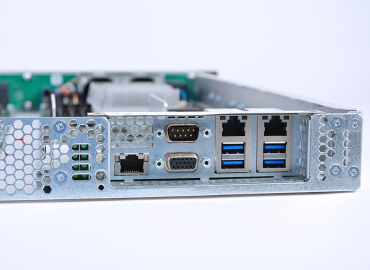In the world of data and information management, a database management system (DBMS) is a software system that enables users to define, create, maintain, and control access to a database. A DBMS provides a platform for managing data effectively and efficiently, and it is a critical tool for organizations that deal with large amounts of data. There are many types of DBMS available, each with its strengths and weaknesses. In this article, we will explore some of the most popular database management system examples and their key features.
Relational DBMS
Relational DBMS is one of the most common types of DBMS. It is based on the relational model of data, where data is stored in tables consisting of rows and columns. Some popular examples of relational DBMS are MySQL, Oracle, and Microsoft SQL Server. Relational DBMS allows users to define relationships between different tables, and it provides a powerful querying language, SQL, to retrieve data from the tables.
NoSQL DBMS
NoSQL DBMS is a non-relational database management system that allows for flexible and dynamic schema design. NoSQL databases are designed to handle large volumes of unstructured and semi-structured data. Some popular examples of NoSQL DBMS are MongoDB, Cassandra, and Redis. NoSQL databases are highly scalable and provide fast and efficient data processing.
In-Memory DBMS
In-Memory DBMS is a type of database management system that stores data entirely in memory. This type of DBMS is designed to provide high-speed data processing and retrieval. Some popular examples of In-Memory DBMS are SAP HANA, Oracle TimesTen, and IBM SolidDB. In-Memory DBMS is ideal for applications that require real-time data processing and high-speed analytics.

Cloud-Based DBMS
Cloud-based DBMS is a type of DBMS that is hosted on a cloud platform, such as Amazon Web Services (AWS) or Microsoft Azure. Cloud-based DBMS provides scalability and flexibility, allowing users to access their data from anywhere with an internet connection. Some popular examples of cloud-based DBMS are Google Cloud SQL, Amazon Aurora, and Microsoft SQL Azure. Cloud-based DBMS is ideal for organizations that need to manage large amounts of data and require high levels of availability and performance.
Choosing the right DBMS for your organization is critical to ensuring that your data is managed effectively and efficiently. Each type of DBMS has its strengths and weaknesses, and it is important to understand your organization’s needs and requirements when selecting a DBMS. Relational DBMS, NoSQL DBMS, In-Memory DBMS, and Cloud-based DBMS are just a few of the many options available in the market. By exploring these database management system examples and their key features, you can make an informed decision about which DBMS is best suited for your organization’s needs.





